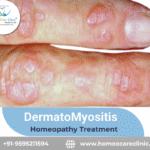What is PID?
Pelvic Inflammatory Disease (PID) is an infection affecting a woman’s reproductive organs, including the uterus, fallopian tubes, and ovaries. PID usually results from untreated sexually transmitted infections (STIs), such as chlamydia and gonorrhea, although other bacteria can also cause the disease. If untreated, PID can lead to severe complications, including chronic pelvic pain, infertility, and ectopic pregnancies. Conventional treatment relies heavily on antibiotics, while homeopathy takes a holistic approach, focusing on addressing the root cause and stimulating the body’s natural healing process.
In this blog, we will explore PID’s causes, symptoms, conventional treatments, and the holistic remedies offered by homeopathy.
Causes of Pelvic Inflammatory Disease (PID)
PID often results from bacterial infections that spread upward from the cervix into the reproductive organs. The main causes include:
- Sexually Transmitted Infections (STIs): Chlamydia and gonorrhea are primary causes of PID. Without treatment, these infections can lead to PID.
- Multiple Sexual Partners: Women with multiple partners or those who engage in unprotected sex have a higher risk of contracting STIs and PID.
- Douching: Frequent douching disrupts the natural vaginal flora, increasing infection risk.
- Insertion of Intrauterine Devices (IUDs): While rare, introducing an IUD can bring bacteria into the reproductive tract, leading to PID.
- Miscarriage or Abortion: Following a miscarriage or abortion, infections can more easily access the reproductive organs if hygiene is compromised.
- Compromised Immune System: A weakened immune system heightens the risk of infections that could lead to PID.
Pelvic Inflammatory Disease PID Symptoms
Symptoms of PID can range from mild to severe, and in some cases, there may be no symptoms. Common symptoms include:
- Pelvic Pain: Persistent discomfort in the lower abdomen or pelvic area.
- Painful Intercourse: Also known as dyspareunia, this pain occurs during sexual activity.
- Abnormal Vaginal Discharge: Yellow or green discharge with an unusual odor.
- Irregular Menstrual Bleeding: Bleeding between periods or heavy menstrual flow.
- Fever with Chills: Low-grade fever with chills, a sign of infection.
- Painful Urination: Discomfort while urinating, which can be confused with a urinary tract infection.
- Nausea and Vomiting: Occurs in more severe cases of PID.
Routine gynecological exams are essential, as some women may experience no symptoms, and early diagnosis can prevent complications.
Conventional Treatment for Pelvic Inflammatory Disease (PID)
Conventional PID treatment generally includes antibiotics and, in severe cases, hospitalization. Treatment may involve:
- Antibiotics: Medications like doxycycline, metronidazole, and ceftriaxone are prescribed to eliminate the bacterial infection.
- Hospitalization: Severe PID may require intravenous (IV) antibiotics, typically administered in a hospital.
- Surgery: In cases where an abscess forms, surgery may be necessary to drain it.
- Abstinence During Treatment: Patients are advised to abstain from sexual activity during treatment to prevent further infection.
While antibiotics can eliminate the infection, they do not repair any damage to the reproductive organs and may sometimes cause resistance or side effects, prompting some to seek homeopathic treatment as a natural alternative.
Homeopathic Treatment for Pelvic Inflammatory Disease (PID)
Homeopathy offers a holistic, personalized approach to treating PID, addressing both physical and emotional aspects of the condition. Here’s how a homeopathic treatment process might look:
Step 1: Case Analysis
At Homeo Care Clinic, Dr. Vaseem Choudhary and his team conduct a thorough analysis of symptoms, emotional state, lifestyle, and medical history to determine the root cause of PID and select the best remedies.
Step 2: Selection of Homeopathic Medicine for PID
Common homeopathic remedies for PID include:
- Medorrhinum: Useful for PID resulting from STIs like gonorrhea, alleviating pelvic pain and purulent discharge.
- Belladonna: Prescribed for acute PID with throbbing pain and fever.
- Hepar Sulphuris: Beneficial for cases with pus or abscess formation and painful discharge.
- Pulsatilla: Suitable for mild pelvic pain and irregular cycles, especially if symptoms worsen in heat.
- Sepia: Effective in chronic PID with dragging pelvic pain and emotional distress.
- Silicea: Indicated for chronic infections or foul-smelling discharge.
Step 3: Lifestyle and Dietary Recommendations
Alongside homeopathic remedies, Dr. Choudhary’s team advises lifestyle changes to enhance immunity and reduce recurrence.
Step 4: Monitoring and Follow-up
Regular follow-ups allow for adjustments in the treatment plan, ensuring effective symptom management and preventing progression.
Advantages of Homeopathy for Pelvic Inflammatory Disease (PID)
- Natural Healing: Homeopathic remedies are derived from natural sources, providing a safe and gentle approach to healing.
- Holistic Approach: Treats both physical and emotional aspects, promoting comprehensive recovery.
- No Side Effects: Homeopathic treatments are free from antibiotic side effects and avoid resistance issues.
- Boosts Immunity: Homeopathy strengthens the immune system, reducing the likelihood of recurring infections.
Diet and Lifestyle Tips for Managing Pelvic Inflammatory Disease (PID)
- Eat an Anti-inflammatory Diet: Focus on fruits, vegetables, nuts, and seeds, while avoiding processed foods and excessive sugar.
- Hydration: Drink plenty of water to flush out toxins and support immunity.
- Practice Safer Sex: Using condoms can prevent STIs and reduce PID risk.
- Good Hygiene: Maintain proper genital hygiene, and avoid douching.
- Manage Stress: Practice yoga, meditation, or other relaxation techniques to strengthen immunity.
- Regular Check-ups: Routine gynecological exams can help with early detection and prevent complications.
PID, if left untreated, can lead to serious health problems. While antibiotics can treat the infection, homeopathy offers a holistic and natural approach, addressing the underlying causes and reducing recurrence. At Homeo Care Clinic, Dr. Vaseem Choudhary and his team use personalized treatment plans targeting the root causes of PID, guiding patients toward full recovery.
FAQs about Pelvic Inflammatory Disease (PID) and Homeopathy
1. Can homeopathic remedies treat Pelvic Inflammatory Disease (PID)?
Yes, homeopathic remedies for PID target the infection’s root cause and boost the immune system to prevent recurrence. It is often used as a complementary therapy with conventional treatments.
2. What are effective homeopathic remedies for PID?
Some effective remedies include Medorrhinum, Belladonna, Hepar Sulphuris, Pulsatilla, Sepia, and Silicea. The choice depends on individual symptoms and condition.
3. How long does homeopathic treatment for PID take?
Treatment duration varies. Acute cases may improve within weeks, while chronic cases could require longer. Regular follow-ups are crucial for effective monitoring and adjustments.
4. Is homeopathy safe for PID treatment during pregnancy?
Yes, homeopathic remedies are generally safe for pregnant women, but they should consult an experienced homeopathic doctor for appropriate treatment.
5. Can homeopathy prevent PID recurrence?
Homeopathy can reduce recurrence risk by strengthening immunity and treating the infection’s underlying causes, especially with lifestyle adjustments.
Homeopathy offers a holistic, natural approach to managing and preventing Pelvic Inflammatory Disease (PID), helping patients recover effectively and avoid future complications.
In Conclusion
Homeo Care Clinic offers a holistic approach to treating the disease. The remedies mentioned above can treat the underlying causes of the condition and offer relief from the discomfort. However, it is important to consult a qualified homeopathic practitioner for the correct dosage and duration of treatment. Homeo Care Clinic provides comprehensive care for various ailments, and offers customized treatment plans based on individual requirements.
To schedule an appointment or learn more about our treatment, please visit our website or give us a call +91 9595211594 our best homeopathy doctor will be here to help.
Follow us on Facebook, Twitter, and Instagram for valuable insights into the world of homeopathy and holistic health.
Facebook – https://www.facebook.com/homeocareclinicpune
Instagram – https://www.instagram.com/homeocareclinic_in
Website – https://www.homeocareclinic.in
Case study of our Patient – homeocareclinic.in/category/case-study
Twitter – twitter.com/drvaseem23
LinkedIn – linkedin.com/company/homeo-care-clinic
Chat with a best homeopathic doctor privately
If you have any queries regarding your disease or any symptoms, click to send a WhatsApp message. Our best homeopathy doctor will be happy to answer you.
Book an Appointment
If you want to visit our clinic, click to book an appointment.
Online treatment
If you are a busy professional, or you are living in a remote town or city, with no best homeopathic doctor near you, Click to start an online homeopathic treatment with the world’s exclusive, most experienced and best homeopathic clinic, managed by Dr. Vaseem Choudhary world-renowned homeopathic doctor expert







